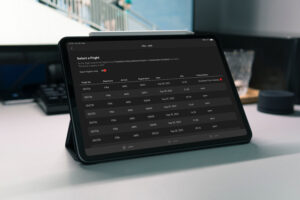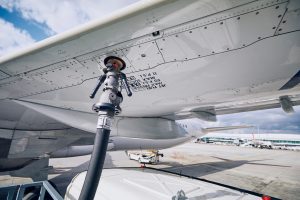Regardless of the exact percentage, no one denies that airlines are a major player when it comes to CO2 emissions. Subsequently, the relevance of sustainability KPIs for airlines has been steadily increasing over the last few years.
However, there are still airlines that consider sustainability as a necessary evil. From my perspective, they are missing a huge opportunity. I would go even that far and say that sustainability in all of its forms —fuel/CO2 reduction, compensation possibilities, weight reduction— can represent a substantial competitive advantage for airlines.
Sustainability And Airline Operations — Here’s The Status Quo.
As mentioned above there are still many airlines that haven’t realized the immense impact of this development. Or they realized the impact but don’t care about it.
Of course, some of them have started to implement measures (e. g. compensate your flight, sustainability websites, operational measures).
From my perspective, this has the taste of some quick pills to cure the most substantial pain. However, I don’t have the impression that airlines are following a comprehensive approach to tackle that challenge.
An indication that this topic hasn’t arrived in day-to-day operations at airlines is the lack of sustainability KPIs that are measured in real-time. An analysis we performed in 2019 came to the result that not a single sustainability KPI is contained in the list of most-used real-time KPIs.
Sustainability KPIs — A Topic For Airline’s Annual Reports But Not For Day-To-Day Operations?
When talking to airline representatives, sustainability KPIs seem to be relevant when it comes to annual reports. However, real-time monitoring isn’t a topic for most airlines. On the contrary, day-to-day operations still are determined by punctuality, stability, regularity.
And this, of course, makes sense at first glance. You wouldn’t cancel a particular flight just because of its negative CO2 balance (at least not yet). And passengers are (still) more interested in arriving on time than arriving with a sustainable CO2 balance.
What Are The Essential Sustainability KPIs?
Before discussing the aspect of why it is important to monitor sustainability KPIs in real-time let’s have a look at potential KPIs. Undoubtedly, there are many KPIs that are worth to be monitored daily or in real-time:
- How much fuel has been burned today?
- How much CO2 has been generated today?
- What’s the fuel burned per pax ratio?
- What’s the CO2 per pax ratio?
- Which are the most economical routes in terms of CO2 today?
- Which are the worst routes?
- Which’s the most economical aircraft today?
As always, the KPIs themselves won’t improve the situation — but you know the saying, “if you can’t measure it, you can’t control it.”
Why It’s Important To Measure Sustainability KPIs In Real-Time?
Many airline colleagues I’ve been talking to are convinced that it is totally sufficient to track sustainability KPIs with monthly reports.
I don’t think so at all. Moreover, I’m firmly convinced that it is inevitable to establish these KPIs and integrate them into an airline’s daily/real-time monitoring.
Why? Because I’m pretty sure, that once established the ball of initiatives based on it starts rolling immediately. As soon as you start to visuality facts and figures —at a prominent place— airline employees will watch it. Consequently, they talk about, they start thinking, and debating. This is just human and a positive, natural process. Subsequently, things will start to progress:
- You will identify weaknesses (why are certain flights performing that bad?) and be able to set up countermeasures
- You will be able to improve your customer communication due to the availability of more, more accurate and more up-to-date information
- You will promote the topic of sustainability internally and create thought-provoking impulses
- You will create transparency about CO2 across routes and aircraft
- You will form a basis for further analytics on CO2 and fuel
And each of these points is super-necessary in terms of sustainability and will become increasingly important over the next years.
So from my point of view, the question is not “should I set up sustainability KPIs daily/in real-time.” The question has to be “how fast can I set up the KPIs” to push the topic of sustainability and to outnumber my competition.
What Do You Think?
Always happy to get your ideas and thoughts on a topic. Hit me up on Twitter or get in touch with me on LinkedIn.





